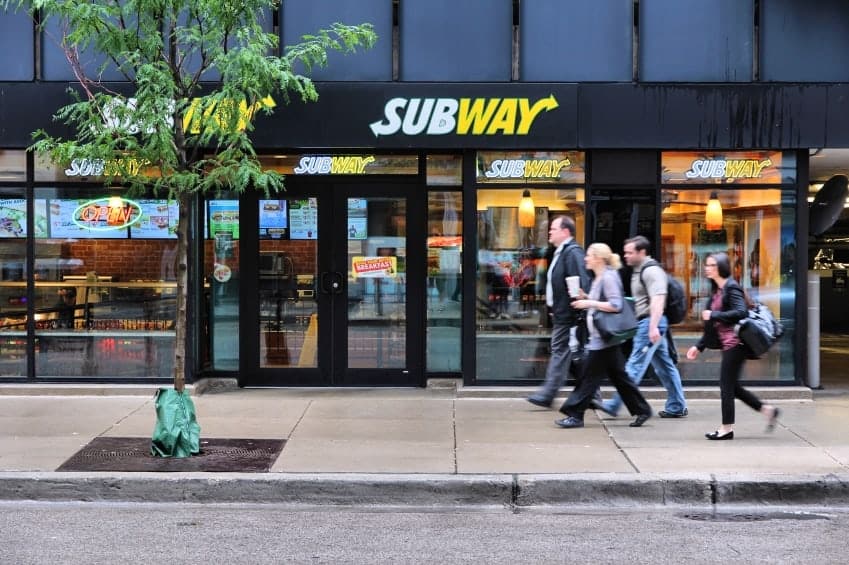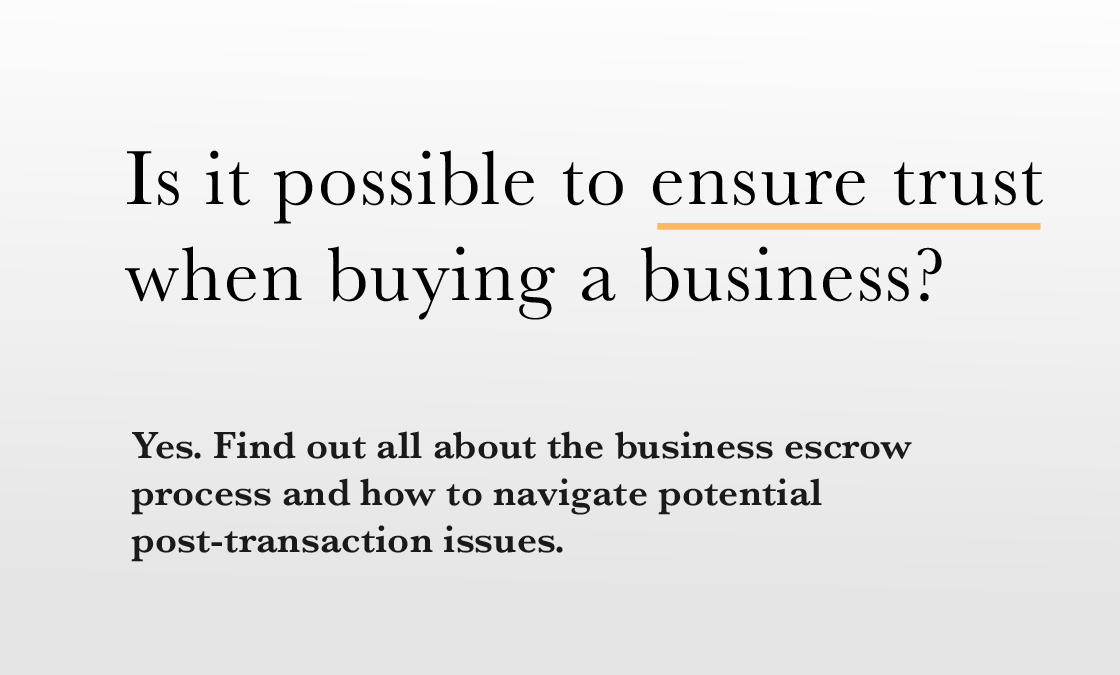Thinking of buying a franchise? That’s very exciting. For many, franchising is the first foray into owning your own business. As with any business purchase, however, you will want to make sure that you can expect a decent return on your investment. That is the purpose of a thorough due diligence review.
But franchise law in the U.S. and states like California is in a state of flux, and your decision about whether to cast your lot with a franchise or which one to choose should be based on an understanding of new pitfalls that have opened up with the shifting legal landscape. Following is a rough guide to the universe of franchising due diligence today.
Basic Due Diligence
Basic due diligence has three parts:
- Document review, which you should largely delegate to your business attorney. Be sure you trust him or her to be thorough and to tell you about the important stuff, especially because your skills are needed elsewhere,
- Interviews, which you, your partners and investors, as well as your attorney should play a role in, and
- Self-assessment, which may involve your bank, partners, investors, your nearest and dearest and the man in the mirror.
Document Review. This involves boxes and boxes of documents or the equivalent in electronic files. Three are particularly important:
- the Franchise Agreement, which is the contract between franchisee and franchisor and which details all the rights and obligations on both sides,
- the Franchise Disclosure Document, which will describe more of the financial details of the deal you are contemplating and
- In New York and California, among other states, a Uniform Franchise Offering Circular must be on file with the state. The UFOC will indicate whether either state officials or franchisees have instituted disciplinary or legal action against the franchisor.
In addition, your attorney will want to see at least three years of financial statements for an existing franchise and ancillary agreements including equipment leases, commercial property leases, intellectual property, confidentiality and non-compete agreements.
Interviews. The second step should include interviews with current and former franchisees. Contact information for these individuals should be included in the Franchise Disclosure Document. It is often wise to go a bit beyond the recommended contacts who may be among the happier franchisees. You will want to know why people have been dissatisfied, as well.
Is the franchisor’s estimate of profitability reasonable in a given geographic location based on the franchisee’s experience? Ask the franchisee what should you really expect in terms of training and assistance from the franchisor,
Are there hidden issues? The difference between success and failure may come down to something as basic as parking availability. It is important to get a down to earth as well as a bird’s eye view of the opportunity.
Navel gazing. Finally, keep in mind that this may be a 5- or 10-year commitment. Does it make sense in terms of your future plans? Have you evaluated comparable opportunities, or did you lock onto this opportunity too soon? Does your own calculation of the required anticipated initial investment correspond with the franchisor’s estimate? Trust your own math.
What are your financing plans and are your ideas about business structure sound? Will you be purchasing the franchise as a sole proprietor, partnership, LLC or something else? It is a very good idea to review this issue with your lawyer as well as your banker, and remember that not all franchises permit ownership by partnerships.
Changing Legal Situation
The relationship between franchisors and franchisees is governed by state law, contract law, and to a lesser degree, federal law. The rules are also changing. Today, we can identify four big issues. Tomorrow, there may be more.
Joint Employer Liability. In 2014, the NLRB’s General Counsel took the position that a franchisor (in this case McDonald’s USA, LLC) was a joint employer, along with the franchisee in an unfair labor practices case. The rationale was that even when the franchisee exercises immediate control of hiring, firing and other employment matters, those decisions are indirectly affected by policy matters within the sole control of the franchisor.
The NLRB’s stance was relevant only to that particular dispute. However, if this were to become the new standard, it is hard to imagine a situation in which a franchisor would not be liable for employment actions taken by the franchisee.
A similar theory was at work in the California case of Patterson v. Domino’s Pizza, LLC. The trial court was not persuaded by the argument that the franchisor was a joint employer but the Court of Appeals was. The California Supreme Court ultimately sided with the trial court, but may have left the door open for future lawsuits. That decision noted that a franchisor may be liable if it retains the right of general control over the day to day operations of its franchisees.
The franchise industry is concerned the both the NLRB’s action and Patterson case could set a precedent requiring all franchisors to oversee how franchisees manage employees.
Franchisor’s Right to Terminate the Franchise. Last year the California legislature passed SB 610, which would have limited the ability of franchisors to terminate the agreement prior to the expiration of its term. Instead of being able to terminate franchise for “good cause,” franchisors would have had to demonstrate that the franchisee was in substantial and material breach of the contract. The bill would have also permitted franchisees to sell their franchises more freely. Governor Brown vetoed the measure, leaving the existing standards in place, but the issue had wide support and may come up again.
Minimum Wage. Many franchise employees, especially in the fast food sector, make only minimum wage. The federal minimum wage remains at $7.25 per hour. Certain states and municipalities have recently adopted higher minimums.
Some of the increases may not go into effect until the future and some, like Seattle’s jump to $15 per hour, phase on a schedule that depends on whether the employer is a large or small employer, as defined by the law. Depending on the outcome of several pending cases, franchises with only a few employees in Seattle may discover that they are “large employers” subject to the faster phase in.
Renewed DOL Scrutiny. Franchises, especially in the fast food, hotel and motel operation, janitorial and home health care industries have been on the Department of Labor’s “suspect list” since the DOL issued its 2010 report “Improving Workplace Conditions through Strategic Enforcement.” David Weil, principal author of the report and now the DOL’s Wage and Hour Administrator, has noted that franchising plays a role in incentivizing employers to violate labor and employment law with respect to low wage workers. Franchisees in these identified areas should anticipate special scrutiny.
What Do these Developments Mean for Due Diligence
The need for thorough due diligence has certainly not been reduced by any of these developments. Potential franchisees should ensure that they understand the following issues completely:
- How much autonomy should you expect in managing employees? The other side to that question, of course, is how much liability to expect and under what circumstances might it be shared with the franchisor.
- It is probably best not to think of your franchise as a perpetual arrangement. Under what circumstances may the franchisor terminate or decline to renew the franchise? What will you recoup in the event that happens? Who owns the equipment and other assets? Will you have the right to sell those assets at the end of the franchise arrangement?
- Subject to what conditions and approvals may you sell an ongoing franchise? On the other side, if you are buying an ongoing business, be sure that you understand whether you are buying the remaining term of an existing franchise agreement or a full term.
- What would your continuing obligations be if you were to end the franchise arrangement prior to the expiration of its term?
- What impact might new wage scales have on anticipated revenues? Remember that, as minimum wages rise, so will the expectations of those making more than minimum wage. Old financial statements may not be a meaningful indicator of future prospects because of these changes.
- Some industries, such as fast food, hotel and motel operation, janitorial and home health care should anticipate close government scrutiny.
- The fast food industry has also been the target of unionization efforts. Expect this to continue.
- Make sure that you understand the changes in a franchise’s reputation and its financial worth on a national as well as a local level. McDonalds, for example, had a very rough year, last year.
Buying a franchise can be a terrific opportunity and many small businesspeople do quite well with franchising. Your decision about a business prospect should be made on the basis of more than enthusiasm about a product, however. The decision should be made on the basis of very complete due diligence and an appreciation of how the changing legal landscape affects the significance of the information you discover.


![Buyers vs. Sellers: Negotiating Mergers & Acquisitions [e319]](https://www.pashalaw.com/wp-content/uploads/2022/06/Pasha_LSSB_BuyersVsSellers_banner-1024x723.jpg)
![Wrap Up | Behind the Buy [8/8] [309]](https://www.pashalaw.com/wp-content/uploads/2020/11/Pasha_BehindTheBuy_Episode8-1024x683.jpg)
![Mo’ Investigation Mo’ Problems | Behind the Buy [4/8] [305]](https://www.pashalaw.com/wp-content/uploads/2020/05/interrobang-1-scaled-1024x683.jpg)

![Broker or Joker | Behind the Buy [3/8] [304] Behind the buy - Broker or Joker](https://www.pashalaw.com/wp-content/uploads/2020/04/Joker-or-Broker-1-1024x633.jpg)
![Why the Business Buying Process is Like a Wedding?: A Legal Guide [e299]](https://www.pashalaw.com/wp-content/uploads/2019/03/futura-1024x576.jpg)
![Friday Grab Bag: Pizza, Sweepstakes, and Rants [e157] Friday Grab Bag: Pizza, Sweepstakes, and Rants](https://www.pashalaw.com/wp-content/uploads/2015/02/Friday-Grab-Bag-Pizza-Sweepstakes-and-Rants.jpg)

![Can the IRS Tax Employees for Getting Free Lunches? [e93] Can the IRS Tax Employees for Getting Free Lunches?](https://www.pashalaw.com/wp-content/uploads/2014/09/Can-the-IRS-Tax-Employees-for-Getting-Free-Lunches.jpg)





![Law in the Digital Age: Exploring the Legal Intricacies of Artificial Intelligence [e323]](https://www.pashalaw.com/wp-content/uploads/2023/11/WhatsApp-Image-2023-11-21-at-13.24.49_4a326c9e-300x212.jpg)
![Unraveling the Workforce: Navigating the Aftermath of Mass Layoffs [e322]](https://www.pashalaw.com/wp-content/uploads/2023/07/Untitled-design-23-300x212.png)
![Return to the Office vs. Remote: What Can Employers Legally Enforce? [e321]](https://www.pashalaw.com/wp-content/uploads/2023/01/Pasha_LSSB_321_banner-300x212.jpg)
![Explaining the Hans Niemann Chess Lawsuit v. Magnus Carlsen [e320]](https://www.pashalaw.com/wp-content/uploads/2022/10/LAWYER-EXPLAINS-7-300x169.png)
![California v. Texas: Which is Better for Business? [313]](https://www.pashalaw.com/wp-content/uploads/2021/07/Pasha_LSSB_CaliforniaVSTexas-300x212.jpg)
![Buyers vs. Sellers: Negotiating Mergers & Acquisitions [e319]](https://www.pashalaw.com/wp-content/uploads/2022/06/Pasha_LSSB_BuyersVsSellers_banner-300x212.jpg)
![Employers vs. Employees: When Are Employment Restrictions Fair? [e318]](https://www.pashalaw.com/wp-content/uploads/2022/05/Pasha_LSSB_EmployeesVsEmployers_banner-1-300x212.jpg)
![Vaccine Mandates Supreme Court Rulings [E317]](https://www.pashalaw.com/wp-content/uploads/2022/02/WhatsApp-Image-2022-02-11-at-4.10.32-PM-300x212.jpeg)
![Business of Healthcare [e316]](https://www.pashalaw.com/wp-content/uploads/2021/11/Pasha_LSSB_BusinessofHealthcare_banner-300x212.jpg)
![Social Media and the Law [e315]](https://www.pashalaw.com/wp-content/uploads/2021/10/WhatsApp-Image-2021-10-06-at-1.43.08-PM-300x212.jpeg)
![Defining NDA Boundaries: When does it go too far? [e314]](https://www.pashalaw.com/wp-content/uploads/2021/09/Pasha_LSSB_NDA_WordPress-2-300x212.jpg)
![More Than a Mistake: Business Blunders to Avoid [312] Top Five Business Blunders](https://www.pashalaw.com/wp-content/uploads/2021/06/Pasha_LSSB_Blunders_WP-1-300x212.jpg)
![Is There a Right Way to Fire an Employee? We Ask the Experts [311]](https://www.pashalaw.com/wp-content/uploads/2021/02/Pasha_LSSB_FireAnEmployee_Website-300x200.jpg)
![The New Frontier: Navigating Business Law During a Pandemic [310]](https://www.pashalaw.com/wp-content/uploads/2020/12/Pasha_LSSB_Epidsode308_Covid_Web-1-300x200.jpg)
![Wrap Up | Behind the Buy [8/8] [309]](https://www.pashalaw.com/wp-content/uploads/2020/11/Pasha_BehindTheBuy_Episode8-300x200.jpg)
![Is it all over? | Behind the Buy [7/8] [308]](https://www.pashalaw.com/wp-content/uploads/2020/09/iStock-1153248856-overlay-scaled-300x200.jpg)
![Fight for Your [Trademark] Rights | Behind the Buy [6/8] [307]](https://www.pashalaw.com/wp-content/uploads/2020/07/Fight-for-your-trademark-right-300x200.jpg)
![They Let It Slip | Behind the Buy [5/8] [306]](https://www.pashalaw.com/wp-content/uploads/2020/06/Behind-the-buy-they-let-it-slip-300x200.jpg)
![Mo’ Investigation Mo’ Problems | Behind the Buy [4/8] [305]](https://www.pashalaw.com/wp-content/uploads/2020/05/interrobang-1-scaled-300x200.jpg)
![Broker or Joker | Behind the Buy [3/8] [304] Behind the buy - Broker or Joker](https://www.pashalaw.com/wp-content/uploads/2020/04/Joker-or-Broker-1-300x185.jpg)
![Intentions Are Nothing Without a Signature | Behind the Buy [2/8] [303]](https://www.pashalaw.com/wp-content/uploads/2020/04/intentions-are-nothing-without-a-signature-300x185.jpg)
![From First Steps to Final Signatures | Behind the Buy [1/8] [302]](https://www.pashalaw.com/wp-content/uploads/2020/04/first-steps-to-final-signatures-300x185.jpg)
![The Dark-side of GrubHub’s (and others’) Relationship with Restaurants [e301]](https://www.pashalaw.com/wp-content/uploads/2015/04/When-Competition-Goes-Too-Far-Ice-Cream-Truck-Edition-300x201.jpg)
![Ultimate Legal Breakdown of Internet Law & the Subscription Business Model [e300]](https://www.pashalaw.com/wp-content/uploads/2019/05/Ultimate-Legal-Breakdown-of-Internet-Law-the-Subscription-Business-Model-300x196.jpg)
![Why the Business Buying Process is Like a Wedding?: A Legal Guide [e299]](https://www.pashalaw.com/wp-content/uploads/2019/03/futura-300x169.jpg)
![Will Crowdfunding and General Solicitation Change How Companies Raise Capital? [e298]](https://www.pashalaw.com/wp-content/uploads/2018/11/Will-Crowdfunding-and-General-Solicitation-Change-How-Companies-Raise-Capital-300x159.jpg)
![Pirates, Pilots, and Passwords: Flight Sim Labs Navigates Legal Issues (w/ Marc Hoag as Guest) [e297]](https://www.pashalaw.com/wp-content/uploads/2018/07/flight-sim-labs-300x159.jpg)
![Facebook, Zuckerberg, and the Data Privacy Dilemma [e296] User data, data breach photo by Pete Souza)](https://www.pashalaw.com/wp-content/uploads/2018/04/data-300x159.jpg)
![What To Do When Your Business Is Raided By ICE [e295] I.C.E Raids business](https://www.pashalaw.com/wp-content/uploads/2018/02/ice-cover-300x159.jpg)
![General Contractors & Subcontractors in California – What you need to know [e294]](https://www.pashalaw.com/wp-content/uploads/2018/01/iStock-666960952-300x200.jpg)
![Mattress Giants v. Sleepoplis: The War On Getting You To Bed [e293]](https://www.pashalaw.com/wp-content/uploads/2017/12/sleepopolis-300x159.jpg)
![The Harassment Watershed [e292]](https://www.pashalaw.com/wp-content/uploads/2017/12/me-2-300x219.jpg)
![Investing and Immigrating to the United States: The EB-5 Green Card [e291]](https://www.pashalaw.com/wp-content/uploads/2012/12/eb-5-investment-visa-program-300x159.jpg)
![Responding to a Government Requests (Inquiries, Warrants, etc.) [e290] How to respond to government requests, inquiries, warrants and investigation](https://www.pashalaw.com/wp-content/uploads/2017/10/iStock_57303576_LARGE-300x200.jpg)
![Ultimate Legal Breakdown: Employee Dress Codes [e289]](https://www.pashalaw.com/wp-content/uploads/2017/08/Ultimate-Legal-Breakdown-Template-1-300x159.jpg)
![Ultimate Legal Breakdown: Negative Online Reviews [e288]](https://www.pashalaw.com/wp-content/uploads/2017/06/Ultimate-Legal-Breakdown-Online-Reviews-1-300x159.jpg)
![Ultimate Legal Breakdown: Social Media Marketing [e287]](https://www.pashalaw.com/wp-content/uploads/2017/06/ultimate-legal-breakdown-social-media-marketing-blur-300x159.jpg)
![Ultimate Legal Breakdown: Subscription Box Businesses [e286]](https://www.pashalaw.com/wp-content/uploads/2017/03/ultimate-legal-breakdown-subscription-box-services-pasha-law-2-300x159.jpg)
![Can Companies Protect Against Foreseeable Misuse of Apps [e285]](https://www.pashalaw.com/wp-content/uploads/2017/01/iStock-505291242-300x176.jpg)
![When Using Celebrity Deaths for Brand Promotion Crosses the Line [e284]](https://www.pashalaw.com/wp-content/uploads/2017/01/celbrity-300x159.png)
![Are Employers Liable When Employees Are Accused of Racism? [e283] Racist Employee](https://www.pashalaw.com/wp-content/uploads/2016/12/Are-employers-liable-when-an-employees-are-accused-of-racism-300x159.jpg)
![How Businesses Should Handle Unpaid Bills from Clients [e282] What to do when a client won't pay.](https://www.pashalaw.com/wp-content/uploads/2016/12/How-Businesses-Should-Handle-Unpaid-Bills-to-Clients-300x159.png)
![Can Employers Implement English Only Policies Without Discriminating? [e281]](https://www.pashalaw.com/wp-content/uploads/2016/11/Can-Employers-Impliment-English-Only-Policies-Without-Discriminating-300x159.jpg)
![Why You May No Longer See Actors’ Ages on Their IMDB Page [e280]](https://www.pashalaw.com/wp-content/uploads/2016/10/IMDB-AGE2-300x159.jpg)
![Airbnb’s Discrimination Problem and How Businesses Can Relate [e279]](https://www.pashalaw.com/wp-content/uploads/2016/09/airbnb-300x159.jpg)
![What To Do When Your Amazon Account Gets Suspended [e278]](https://www.pashalaw.com/wp-content/uploads/2016/09/What-To-Do-When-Your-Amazon-Account-Gets-Suspended-1-300x200.jpg)
![How Independent Artists Reacted to Fashion Mogul Zara’s Alleged Infringement [e277]](https://www.pashalaw.com/wp-content/uploads/2016/08/How-Independent-Artists-Reacted-to-Fashion-Mogul-Zaras-Alleged-Infringement--300x159.jpg)
![Can Brave’s Ad Replacing Software Defeat Newspapers and Copyright Law? [e276]](https://www.pashalaw.com/wp-content/uploads/2016/08/Can-Braves-Ad-Replacing-Software-Defeat-Newspapers-and-Copyright-Law-300x159.jpg)
![Why The Roger Ailes Sexual Harassment Lawsuit Is Far From Normal [e275]](https://www.pashalaw.com/wp-content/uploads/2016/07/WHY-THE-ROGER-AILES-SEXUAL-HARASSMENT-LAWSUIT-IS-FAR-FROM-NORMAL-300x159.jpeg)
![How Starbucks Turned Coveted Employer to Employee Complaints [e274]](https://www.pashalaw.com/wp-content/uploads/2016/07/iStock_54169990_LARGE-300x210.jpg)
